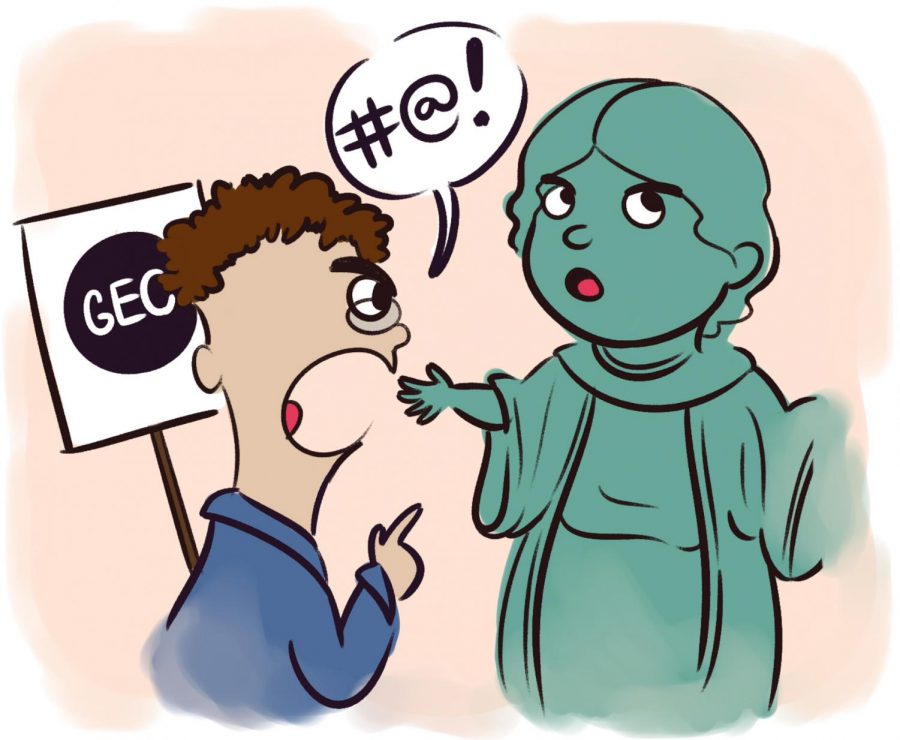University should compensate undergraduate students if GEO strike happens
February 26, 2018
Imagine you bought a florist service, which promised to deliver flowers to your house every week, and it went well during the first few weeks — the flowers were always fresh and ready to be pruned; however, at some point, the florists starts to complain about how they’re working without a contract, and soon after, the flowers start to look messy, uncut and not what the company has promised. Later, you heard it was because of a strike of the florists. Wouldn’t you want a refund?
Resulting from rounds of disappointing and unsuccessful negotiation between the University administration and the Graduate Employees’ Organization, the beginning of the GEO strike has only days to count. When that happens, the whole undergraduate community will be the victim.
There’s no doubt that graduate student employees have become a significant part of the lecturing system at the University, from grading exams and holding discussion sessions to tutoring or even lecturing.
The absence of this highly specialized workforce can make it difficult to provide students with the high-quality education promised to them when they applied and paid their tuition.
Without their help, the students are subject to academic difficulties, resulting in lower final grades and less knowledge obtained.
Get The Daily Illini in your inbox!
It’s true that professors could curve the scores to minimize the effect of the strike, but that would damage the promised quality of education.
The only way to remedy after the strike happens is to extend the semester. Not only is this inconvenient, but it also costs students a lot of money.
The financial losses of the strike are most obvious to out-of-state and international students. They’re paying more tuition, and many of them are living around campus with a very high cost. If the semester is delayed due to the University’s underperforming faculty community, then they will have to pay additional expenses for living here. In fact, they may have to pay a lot more to reschedule their trip back home as many of them have already purchased plane tickets.
On the University’s website, under the academic subtitle, there’s a line that says, “On the strength of our pre-eminent faculty, many academic programs are ranked among the best in the world.”
If the University were to lose their pre-eminent faculty in the GEO, which is about 2,700 people, then these promised world-leading academic programs will be compromised.
The students should have the right to get their compensation.
Last year, in Ontario, Canada, after a five-week college strike, colleges offered students a compensation with two options: full tuition refund or compensation up to $500. Although $500 is far from what students have lost, it is one step to make up the strike by minimizing the damages.
At the brink of the GEO strike, the University needs to consider the outcomes. Is it really worth it to keep walking away from the bargaining table only to make concession after the strike happened? Why repeat what happened in 2009 and let students be the victim?
Li is a freshman in DGS.







